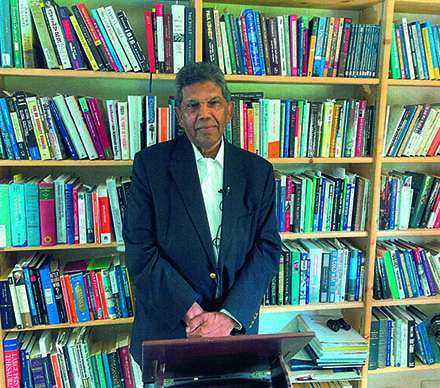By Dr. Bertrand Ramcharan
Barrister-at-Law (Lincoln’s Inn); Attorney-at-Law, Guyana.
Seventh Chancellor of the University of Guyana
At the heart of the UN’s Agenda 2030 lies Sustainable Development Goal 16, which aims for a ‘just, equitable, tolerant, open and socially inclusive world in which the needs of the most vulnerable are met’. How can Judges and Lawyers contribute to the realisation of SDG 16? In this essay we discuss a framework.
Judges and lawyers should have in view the importance of an adequate and effective National Human Rights Protection System in their country.
Every country should have in place an adequate and effective national human rights protection system. A national protection system has the following key dimensions: constitutional, legislative, judicial, institutional, educational, and preventive. Three issues require particular attention and scrutiny from the perspectives of international human rights law: first the adequacy of its fundamental human rights guarantees; second, the independence and efficiency of its judicial institutions; and third, the effectiveness of its national institutions for the protection of human rights.

